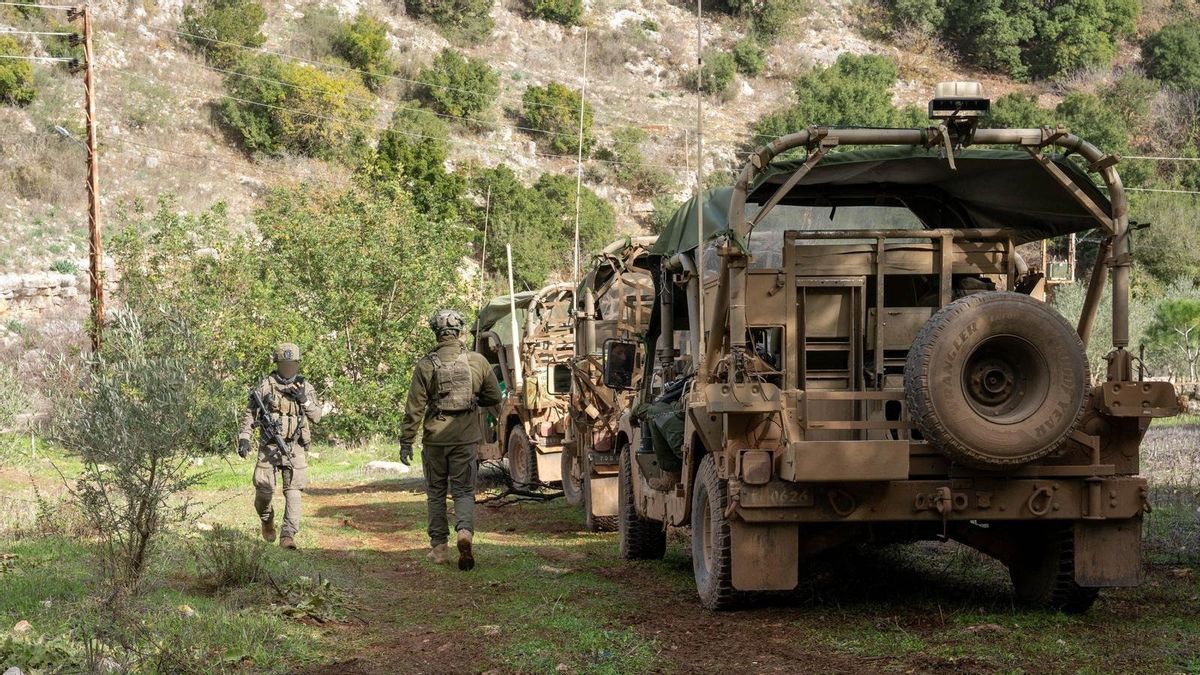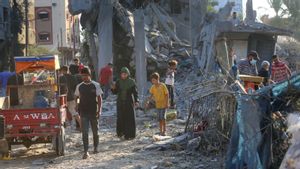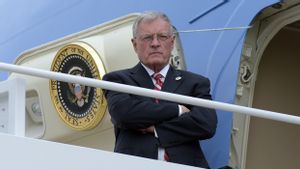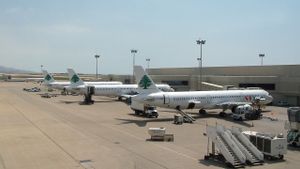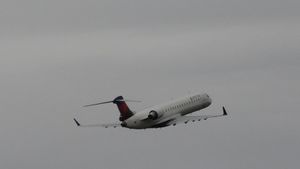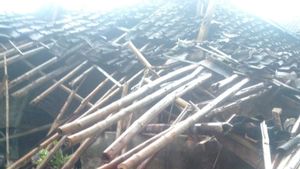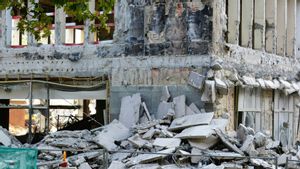JAKARTA - The Israeli military has reportedly completed its troop withdrawal from southern Lebanon, but still leaves troops in five separate locations, according to sources familiar with the matter, while there has been no confirmation from Israeli authorities on this matter.
A Lebanese security official said Israeli forces had begun withdrawing from several border villages, as Lebanese soldiers moved in, hours before the deadline for carrying out the Hezbollah-Israel ceasefire on Tuesday local time.
"Israeli forces began withdrawing from border villages, including Mais al-Jabal and Blide, as Lebanese soldiers moved forward," the official, who asked for his identity to be kept secret due to the sensitivity of the matter, told AFP as quoted by The Times of Israel on February 18.
Hours later, a Lebanese security source said Israel Defense Forces (IDF) had withdrawn from villages in southern Lebanon, but remained in five positions, a Lebanese security source said, as the deadline ended based on a ceasefire agreement.
"Israeli troops have been withdrawn from all border villages except five points, while Lebanese soldiers are gradually deployed due to explosives in several areas and road damage," the source said.
Meanwhile, Lebanese television channel LBCI reported that Lebanese soldiers had moved overnight to the cities and main border villages of Mais al-Jabal, Blida, Yaroun, Maroun and Mahbib, as IDF personnel withdrew.
Several local authorities, including Kotamadya Mais al-Jabal, have asked displaced residents to wait for Lebanese soldiers to be deployed there before returning, to ensure their "safe" return.
The IDF declined to confirm that the troop withdrawal was complete.
Earlier, Lebanese militant group leader Hezbollah said on Sunday, Israeli forces should withdraw completely from Lebanese territory by January 18, insisting "there is no excuse" to maintain military presence at any post in southern Lebanon.
Under a ceasefire brokered by Washington in November 2023, Israeli forces were given 60 days to withdraw from southern Lebanon where they launched a ground attack on Iranian-backed fighters from Hezbollah since early October.
The deadline was later extended to February 18, but the Israeli military requested that its troops remain at five posts in southern Lebanon, a source said.
In a televised address, Secretary General Hezbollah Naim Qassem said: "Israel must withdraw completely on February 18, there is no pretext, no five points or other details, this is the deal."
Qassem said any Israeli military presence on Lebanese soil after February 18 would be considered a occupation force.
"Everyone knows how the occupation is handled," Qassem stressed, without explicitly threatening his group would continue the attack on Israel.
Israel itself said it would meet the February 18 deadline for withdrawing troops by ceasefire, but remains in five strategic positions in southern Lebanon.
An Israeli official on condition of anonymity said they would keep the agreement and would withdraw his troops from Lebanon today.
"We intend to go and fulfill the agreement," the official said, adding "and of course, enforcement will continue."
"As you can see, we just killed a senior Hamas official there in Lebanon intensified, not in southern Lebanon. So we will continue to enforce the law firmly and what happens before October 7 will not happen again," he said.
On Monday, the Israeli military said it would maintain its troops in five strategic locations in southern Lebanon, after today's withdrawal deadline.
SEE ALSO:
"We must remain at these points at this point to defend Israelis, to ensure this process is completed and ultimately hand it over to the Lebanese armed forces," said Israeli military spokesman Lieutenant Colonel Nadav Shoshani in a briefing to reporters.
He said the move was in accordance with the ceasefire agreement mechanism.
Nadav said the locations were close to the Israeli community or occupy strategic places overlooking Israeli cities such as Metula, at Israel's northernmost point.
"Basically the security situation is very, very complex," he said.
The English, Chinese, Japanese, Arabic, and French versions are automatically generated by the AI. So there may still be inaccuracies in translating, please always see Indonesian as our main language. (system supported by DigitalSiber.id)
